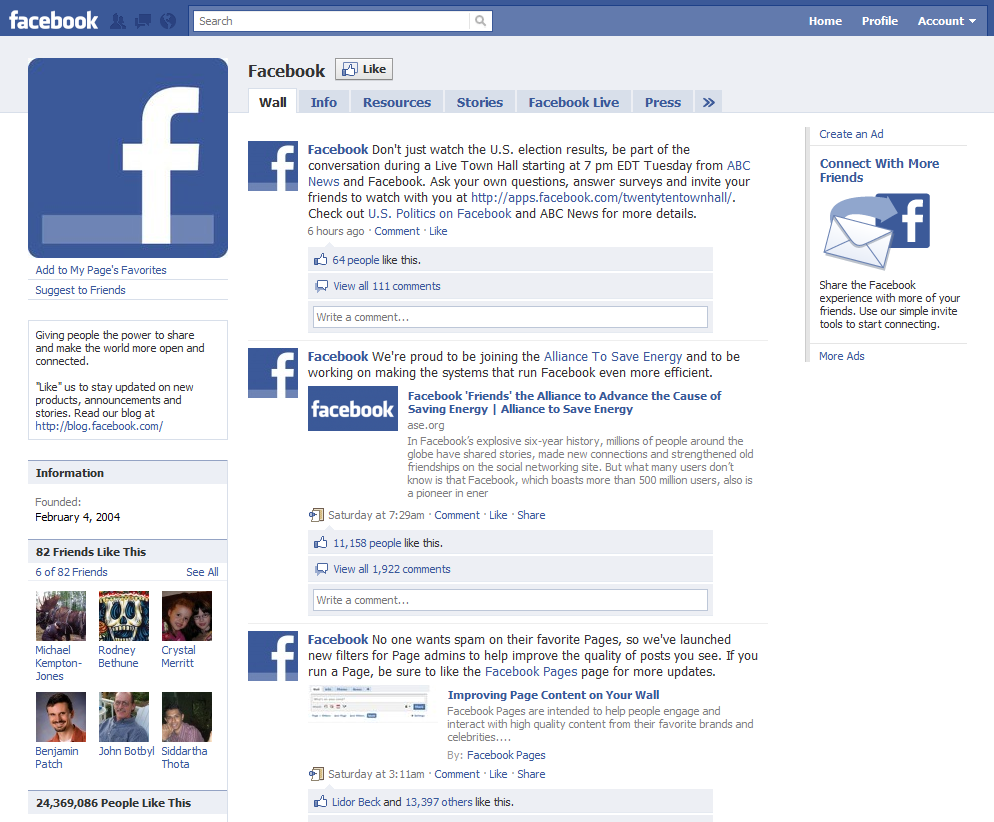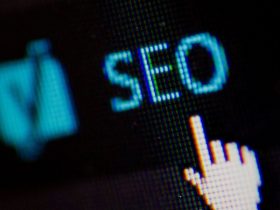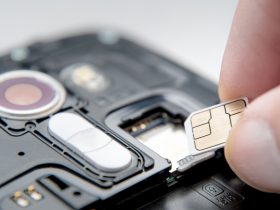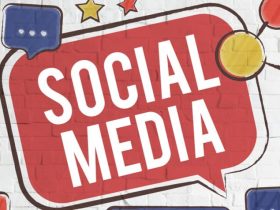Answering this question relies heavily on understanding what you want your business website to do for you. It is assumed that business website users will be posing the question – not many people have personal websites for non-promotional reasons, so it this discussion will expect that anyone looking at the difference between a Facebook page and a “traditional” website is doing so for promotional purposes.

It is important to note that there is a sense in which your Facebook page is a website. It’s a page on the web, with its own URL – which, to a search engine, makes it indistinguishable from any other page on the web that has a URL. Search engines don’t really think of the net as a place where discrete “sites” exist – they view the whole internet as a collection of pages, some of which may be more closely linked than others.
From the point of view of a person or business wishing to promote himself, herself, or itself, Facebook has a key element in its favour: if you can get people to be friends with you, they’ll see everything you do when you are on your own page, and when you are on other pages too. So the more people you can pull into your network, the greater the intensity with which your brand message is pumped into the ether.
In theory, Facebook “friends” are also a self-defining target market, for whatever your brand message happens to be. That is to say, a person who asks to become your Facebook friend, or who signs up to Like your business page, is expressing an interest in what you do that may at some point be translated into expenditure.
What you can’t do on Facebook (yet) is sell things directly. You can make people aware of a brand message linked to products and services, but you don’t actually take payment for, or deliver, those products and services through the site. So if you want to sell, whether it’s a tangible item or an intangible service, you need another online outlet to do that. This is your company website (usually) – which may either take online payment itself or farm the checkout part of the process out to a trusted third party such as Google Checkout or PayPal.
In essence, a Facebook page becomes an adjunct to a website; and by return, the website becomes inextricably aligned with the Facebook page. It is often on Facebook that customers and fans air their views, for instance – and it is your response to that airing that can dictate future opinion of your brand and your business. Put bluntly – if people complain about your stuff on Facebook and you don’t respond satisfactorily, then a lot of people potentially start thinking badly of you.
Facebook is a very public place in which to be a brand. Historically brands have shied away from such unmediated publicity. However, as the modern digital user lives greater portions of his or her life in social media spheres, this is changing. The forward-thinking brand has a Facebook presence for connecting with its audience – but also for managing customer relations out in the open.
About the author:-
Tom Brown is a social media specialist, He has good knowledge in Search engine optimization , Social Media sites like Google+ , Twitter , Facebook and Linked in etc. Follow him on Google+



























